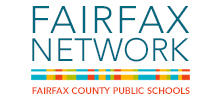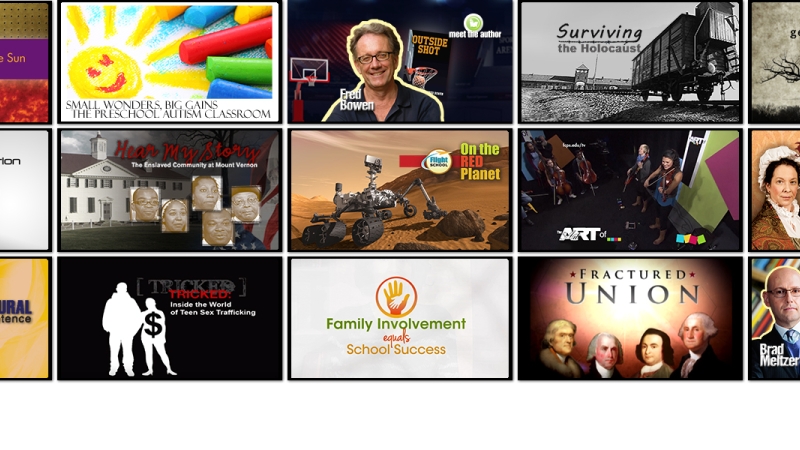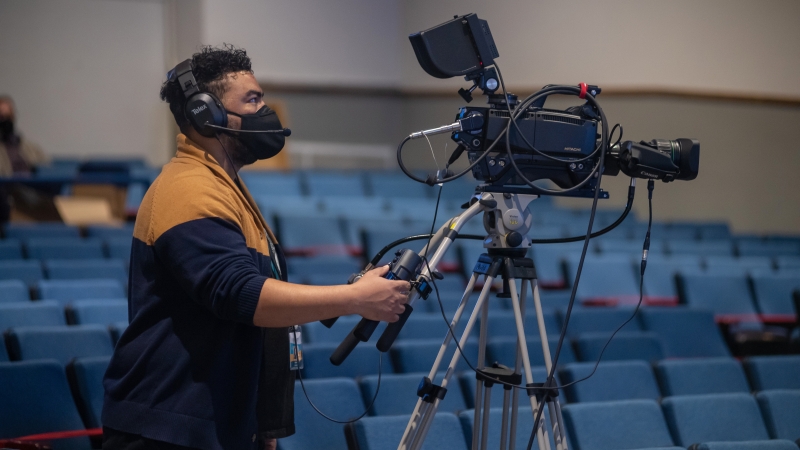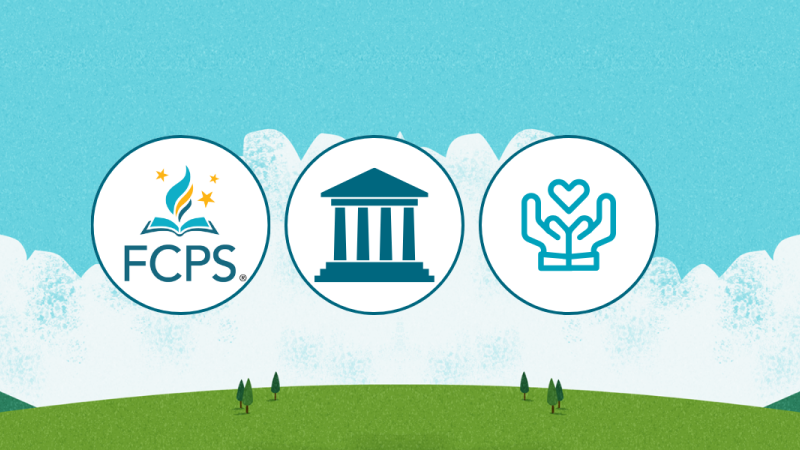
Community Keynotes
Community Keynotes
Each program in the series is an invitation to engage in discussions around important topics affecting our school communities. In each program, local and national experts, school staff, community members, parents, and students will present topical talks and panel discussions in a variety of subject areas. Produced in partnership with other community-minded organizations, Community Keynotes captures and shares these thought-provoking presentations for the benefit of students, teachers, and the community as a whole. The series is available on the Fairfax Network YouTube Channel.
21st Century Teaching and Learning — On YouTube
- This program features the keynote panel from the August 2014 Fairfax County Public Schools (FCPS) Academic Diversity Institute, Portrait of a Graduate: Creating Pathways to Success. The panel features FCPS Superintendent Dr. Karen Garza and members of the FCPS community speaking about how to cultivate students and understand the characteristics of a Portrait of a Graduate in the 21st century. Panel members include Dr. Scott Poole, the principal of Lanier Middle School; Amol Patel, a teacher at South Lakes High School; Daniel Herrera, a student and rising senior at Edison High School; and Dulce Carrillo, a parent of a student at Kent Gardens Elementary School. Panel members discuss 21st century teaching and learning from diverse points of view.
Academic Success & Mental Health — On YouTube
- Dr. Tracy Cross is the president of the National Association for Gifted Children (NAGC) and executive director of the Center for Gifted Education at the College of William and Mary. He discusses academic success and performance perfection among students and the often resulting feelings of inadequacy and/or performance anxiety. Dr. Cross also addresses suicide among children and adolescents, offering understanding and paths for healing.
Assistive Technology — On YouTube
- The keynote speakers are FCPS student ambassadors from the Assistive Technology program and their parents. The role of the student ambassadors is to help promote an understanding of how technologies can help students overcome disabilities and improve their learning experience. The students and their parents discuss their disabilities and the process of identifying assistive technologies to help them. They talk about the challenges involved in adopting the technologies, and share their observations about the various support systems in place in FCPS. They also provide tips on how the technologies work for parents and teachers in the audience.
Concussion Protocol — On YouTube
- Dr. Catherine McGill, a pediatric neuropsychologist at Children’s National Health Systems, shares her expertise on the science behind concussions and how research is driving new management strategies. Certified Athletic Trainer Kathy Ayers discusses the stages a student athlete must go through before returning to play after a concussion. This program also features a look at Heads Up Football, a national program designed to promote player safety and reduce concussions.
Emotional Intelligence — On YouTube
- Dr. Marc Brackett, director of theYale Center for Emotional Intelligence, describes the theory of emotional intelligence, including how it provides a framework to both measure and study the impact of emotions on important life outcomes. He also discusses an evidence-based approach to social and emotional learning which involves the teaching of emotional intelligence to all stakeholders in schools, including students, teachers, leaders, and families. How social and emotional learning decreases bullying, and enhances school climate, problem-solving skills, empathy, and academic performance is the focus of the discussion.
Explicit Instruction — On YouTube
- In this program, Dr. Anita Archer, author of Explicit Instruction, speaks with Fairfax County Public School (FCPS) teachers and administrators on the topic of explicit instruction. She speaks to FCPS educators about a systematic, engaging, and success-oriented method for improving student achievement. She shares her expertise on how to implement the structure and effective instructional strategies to ensure success.
How to Raise An Adult — On YouTube
- Julie Lythcott-Haims is the author of the book How to Raise an Adult. In this presentation, she discusses what she calls “the overparenting trap.” She uses her own experience as a parent and as a former Stanford University dean to share her views on the causes and effects of this form of parenting. Lythcott-Haims offers advice on how parents can raise children prepared for the demands of college and adulthood.
Managing Stress: How Mindfulness Training In Our Schools Can Benefit Students, Educators, and Parents — On YouTube
- How do some students reduce their stress levels and improve their focus and performance? They practice mindfulness. Tara Brach, Ph.D., a nationally recognized mindfulness teacher and author of Radical Acceptance: Embracing Your Life With the Heart of a Buddha and True Refuge: Finding Peace & Freedom in Your Own Awakened Heart, discusses how practicing mindfulness can help improve a student’s ability to respond to events and circumstances with clarity and balance. Also presented is scientific evidence that supports the benefits of mindfulness.
Meeting the Needs of Struggling Readers in an Era of High Standards — On YouTube
- Dr. Jan Hasbrouck is an educational consultant, author, and researcher. Her research in reading fluency, academic assessment and interventions, and coaching has been widely published. Dr. Hasbrouck describes the characteristics of students who become struggling readers and presents research-supported and classroom-proven approaches to successfully address these students' needs.
Neuroscience & Learning — On YouTube
- Dr. Bruce Wexler is professor emeritus of psychiatry and senior research scientist at Yale School of Medicine and the author of Brain and Culture: Neurobiology, Ideology and Social Change. He provides an overview of the brain’s ability to reorganize itself by forming new neural connections throughout life (neuroplasticity). He discusses how neuroplasticity can be used to improve executive functioning skills in children.
Performance-Based Assessments — On YouTube
- Dr. Christopher R. Gareis is the Associate Professor of Educational Leadership at The College of William & Mary in Williamsburg, Virginia. He speaks to instructional staff about the value of performance-based assessments.
Safeguarding Mental Wellness — On YouTube
- The keynote presenters are Dr. Scott Poland, licensed psychologist and professor at the Center for Psychological Studies at Nova Southeastern University in Florida; and Richard Lieberman of the Los Angeles County Suicide Prevention Network. They discuss how we safeguard the mental wellness of our students and tough issues like depression, self-injury, and suicide, and provide parents with tips on how to identify when their children may be at risk. They also present techniques for how to promote mental wellness and how to lessen the impact of precipitating events that could put children at risk.
Strategic Leadership — On YouTube
- Daniel Horgan is the founder and CEO of D.G. Horgan Group, a social enterprise that drives impact through effective leadership development across the talent pipeline. He works with youth in grades K-12, college students, and adults to fully leverage their power, potential and purpose. He speaks about how leaders can predict behaviors, leverage strengths, and identify areas for growth.
Substance Abuse — On YouTube
- Participants share their personal stories about substance abuse, the signs and symptoms of teenage drug abuse, proactive actions parents can take, and where to locate supportive resources. Paula King, intake officer with Fairfax County Juvenile and Domestic Relations Court, moderates the forum. Panelists include Bill Fulton, school resource officer coordinator, Fairfax County Police Department; David Edleman, clinical supervisor, Fairfax-Falls Church Community Service Board Youth and Family Team; and Lori Shapiro, parent of a son in recovery. [This program was produced in partnership with Unified Prevention Coalition of Fairfax County and its work group, PROTECT (Parents Reaching Out to Educate Communities Together.]






